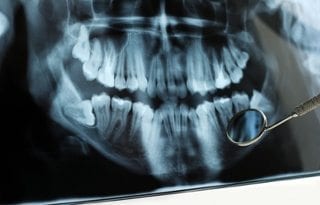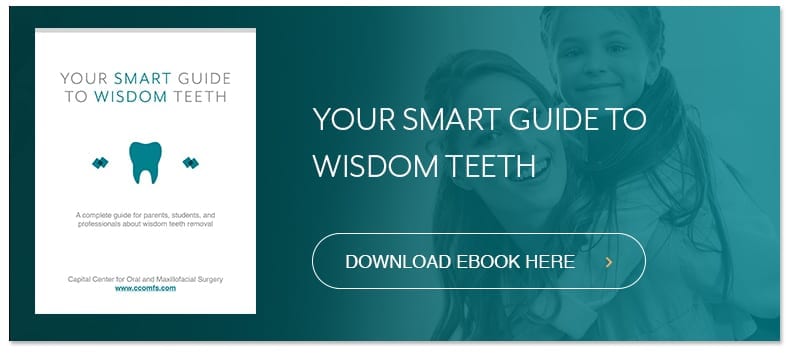 If you’re about to have your wisdom teeth out, you’ll surely want your wisdom teeth removal recovery to go smoothly and be over with as quickly as possible. Making sure that happens means following your oral surgeon’s post-operative instructions very carefully to minimize your risk of complications. It also means taking good care of yourself as you recover, so we’ve put together some tips and advice that can help speed healing, minimizing your recovery time.
If you’re about to have your wisdom teeth out, you’ll surely want your wisdom teeth removal recovery to go smoothly and be over with as quickly as possible. Making sure that happens means following your oral surgeon’s post-operative instructions very carefully to minimize your risk of complications. It also means taking good care of yourself as you recover, so we’ve put together some tips and advice that can help speed healing, minimizing your recovery time.
Wisdom Teeth Removal: The First 24 Hours
The hours immediately following your procedure are very important to wisdom teeth removal recovery. During the first 24 hours, blood clots will form in your empty wisdom teeth sockets that will protect them as they heal, and keeping them securely in place until that process is complete is your goal. If they come out or fail to form properly – a condition called dry socket — you’ll have more pain than you should, and healing will likely be delayed. Avoiding dry socket means staying away from straws, cigarettes and anything else that requires sucking, which can dislodge those clots. Rinsing your mouth too forcefully can dislodge them as well, so be sure to follow instructions on when and how to rinse your mouth very carefully.
You can minimize bleeding after your procedure by resting during that initial 24 hours, since any activity that raises your blood pressure will promote bleeding – and increase your risk of dry socket. Don’t use aspiring for pain, since it can increase bleeding. Swelling can be minimized by using ice packs on your face for that first 24 hours, applying them for 20 minutes at a time, with 20 minute breaks between applications. Taking anti-inflammatory medications can also help, such as Tylenol or Motrin, as can using 2 or 3 pillows to elevate your head when you’re lying down. Additionally, while you’re resting or sleeping,. If your oral surgeon has prescribed medications, such as antibiotics, pain killers or prescription-strength anti-inflammatory medications, take them just as prescribed – don’t skip doses or take too much.
The First Week or Two
As the soft tissues in your mouth heal, which generally takes 10-14 days, you’ll have to observe some dietary restrictions to ensure proper healing and reduce infection risk – spending at least 5 to 7 days on a soft-food diet. Healing will happen more quickly if you’re providing your body with balanced nutrition to fuel the process, so don’t limit your diet to ice cream and pudding. Soups, fruit smoothies, mashed potatoes, and soft-cooked pasta dishes are nutritious options, as are yogurt, cottage cheese and soft cooked vegetables. Taking a good multivitamin/multimineral supplement can help as well. Stay away from sticky foods, like peanut butter or marshmallows, grainy foods, like rice, and hard foods, such as chips, popcorn or nuts. Spicy foods or acidic ones, like tomatoes, may irritate your injured gums, so avoid them as well.
Lastly, be careful about physical activity during your wisdom teeth removal recovery, since over-doing it can promote inflammation, slowing the healing process. As a rule, most patients can get back to normal school/work routines within 5 days, but you’ll still need to take it a bit easier than usual. During that first week or two, avoid heavy lifting, sports, intense work-outs or other very strenuous activities.
While taking these steps may seem like a bit of a bother, they can help ensure that you’re properly healed and healthy as quickly as possible. It can also help ensure that you avoid complications — like dry socket or infection — that can make wisdom teeth removal recovery a longer and more painful process.
For more information on wisdom teeth removal, contact our office at (202) 386-7100.